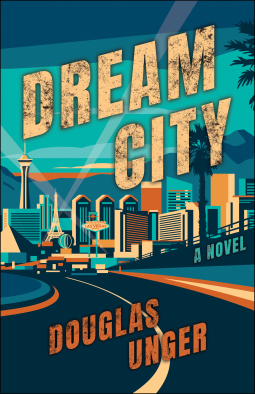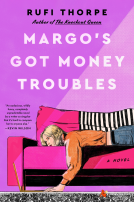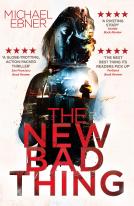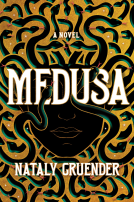
Dream City
A Novel
by Douglas Unger
This title was previously available on NetGalley and is now archived.
Send NetGalley books directly to your Kindle or Kindle app
1
To read on a Kindle or Kindle app, please add kindle@netgalley.com as an approved email address to receive files in your Amazon account. Click here for step-by-step instructions.
2
Also find your Kindle email address within your Amazon account, and enter it here.
Pub Date Oct 08 2024 | Archive Date Nov 30 2024
Talking about this book? Use #DreamCity #NetGalley. More hashtag tips!
Description
As the story progresses, C. D. comes to understand how his personal losses and the losses of his cohort of hard driving executives on the make—especially the tragic life of his work partner, Greta Olsson, the only woman to break through into their male dominated world—are a result of the make-believe environment he has helped to create, a world where representation replaces reality. Hoping to piece together his faltering marriage and family relationships, C. D. must find a new path as he struggles to hold onto his dreams.
In this fictionalized version of the city of glittering lights, author Douglas Unger pits the ideologies of marketing and consumerism in the casino economy of America against the erosion of individual and humane values that success in that world demands. Unger reveals the hard truth that Las Vegas, a blue-collar town considered by many to be “the most honest city,” can be a temple for self-deceptions, emblematic of a service economy that knows the price of everything and too often the value of little else. Dream City becomes both a love song and an elegy for Las Vegas that sets it apart from any other literary novel previously written about this global entertainment attraction that in so many ways represents postmodern America. Sooner or later, the challenge that faces everyone is to discover what matters most, and to learn how to bet on the better angels of our natures.
Advance Praise
“The quintessential Las Vegas novel. Unger dwells in the details, and his evocation of the dream—and its painstaking construction—is utterly convincing. Build it and they will come—or maybe not.”
—T.C. Boyle, distinguished professor emeritus of English and writer in residence emeritus, University of Southern California, author of Blue Skies: A Novel
“What a smart and compelling way to investigate the moral slipperiness of Las Vegas— through building and construction, through all those involved in the making and unmaking of this city. Unger portrays these everchanging landscapes and the players within them with elegance and insight."
—Aimee Bender, author of The Butterfly Lampshade: A Novel, longlisted for the 2020 PEN/Jean Stein Book Award
“Doug Unger’s Dream City is a splendorous example of Borges’ dictum that stories are about situations and novels are about characters. Dream City is also about Las Vegas, the traps of uncontrolled greed, and the futile attempts of one C.D. Reinhart to try to make things right. Carefully written, brilliantly structured, Dream City is hard to put down.”
—Pablo Medina, author of The Cuban Comedy: A Novel
“Doug Unger goes behind the scenes in the real Las Vegas to find the Machiavellian intrigue lurking beneath the glittering surface. Dream City is to twenty-first century Las Vegas what Bonfire of the Vanities was to twentieth century New York—a marvel and a cautionary tale. This is the quintessential novel about America’s most fascinating and archetypal city, where greed and ambition also make room for love and redemption.”
—Sally Denton, author of The Colony: Faith and Blood in a Promised Land
“Doug Unger’s Dream City captures that most American place, Las Vegas, in a most American period of growth and excess. Unger plunges his readers into a fictional account of a real transformation, in which a sleepy gambling town first becomes the brightest place on earth and then the hardest-hit metropolis in the country. Through his main character, a somehow naïve yet fully complicit hotel executive, the narrator deftly creates two realities: the anything-goes, win-at-all-costs giddy world of those raking in the cash, and the soullessness of a success measured only by wealth. Is this cautionary tale – an insider’s account of the rise and fall of Sin City – the canary in the coal mine for twenty-first century America?”
—Laura McBride, author of We Are Called To Rise: A Novel and The Midnight Room: A Novel
"I don’t think anybody has ever written about Vegas with this kind of depth and understanding and heart. Doug Unger knows its history and sees its future. Dream City reads as something important in our understanding of the lives and hearts of the new West. What a deep pleasure this book is.”
—Charles Bock, author of Beautiful Children: A Novel and Alice & Oliver: A Novel
“I was worried about the subject. Everyone is bored with Vegas as mobster playground—and “Grand Theft Auto” makes a book in that genre quaint and passé. Unger’s book is something else entirely. It’s just stunning. By putting mid-life middle class malaise into a planet of G-strings, 24–hour entertainment and con-artist "entrepreneurs," it’s simply a book I couldn’t stop reading―it’s real estate fever and busloads of desperate seekers of happiness on a budget hoping that ‘three coins can change their lives.’ The Great American Casino.”
—Greg Palast, author of The Best Democracy Money Can Buy: A Tale of Billionaires & Ballot Bandits, broadcaster for the BBC, and frequent contributor to The Guardian
"Scholars and historians of Vegas will avidly read Dream City. Unger is a novelist of the highest order–in ambition as well as craft."
—Christopher Coake, English professor and program director of the University of Nevada, Reno MFA program, author of You Came Back: A Novel
Marketing Plan
• Exposé and insider story of Las Vegas during the boom years
• A tale of midlife crisis that pits the chase for money against humane values
• A cautionary tale of postmodern America
• Exposé and insider story of Las Vegas during the boom years
• A tale of midlife crisis that pits the chase for money against humane values
• A cautionary tale of postmodern America
Available Editions
| EDITION | Other Format |
| ISBN | 9781647791650 |
| PRICE | $29.95 (USD) |
| PAGES | 356 |
Available on NetGalley
Featured Reviews
University of Nevada Press provided an early galley for review.
I've never been to Vegas but have always wanted to go. The cover and description of this novel sounded intriguing.
The Pyramid World hotel setting appears to be meant as a stand-in for the real-life Luxor hotel, with the story line of the construction to mirror that of the actual hotel in the early 90's. Unger, a professor of English at the University of Nevada - Las Vegas, clearly is drawing from a city he knows as he sprinkles in plenty of real Vegas locals - other hotels, restaurants, etc. - into the narrative. The details about all things casinos and gamblers also ring true.
I'm a bit on the fence with this one though. At times, it reads a lot more like a nonfiction historical book rather than a fiction novel. Not being familiar with the author (his last fiction book looks to have been from 1995), I am not sure if this is part of his writing style or just the approach taken for this particular release. The narrative arc spans over several decades for the main characters, thus it lacks the urgency I usually gravitate towards in stories. When we do get an in-depth scene with lots of character dialogue and interaction, I was definitely tuned in though.
Reader mileage might vary here.
 Account D, Reviewer
Account D, Reviewer
I thought this worked as a historical fiction novel, it took Las Vegas perfectly and had that element that I was looking for. It was everything that I was hoping for and thought that Douglas Unger created a unique concept overall. I enjoyed getting to know the characters and can’t wait for more.
Deserts frighten me. I live in a beach town for a reason. My trips to Las Vegas weren't numerous, but are very memorable—for good and ill. Here's a story, then, that's set in a place I do not love or admire, featuring a man in Act Three of his life having failed at his other lives, and failing again.
Paging Updike and Cheever, your territory's being encroached.
And most effectively. Author Unger is working in a long tradition of male-centered stories, prioritizing an idea of success that capitalism likes to valorize and that relegates anything other than work to peripheral significance...only to flip the script and show the hollowness and lack of fulfillment and connection inherent in this cultutally approved rat race.
Critiques are most effective when they come from within. This detailed, almost obsessive, chronicling of one man's descent from the pinnacle he dreamed of reaching into the real-world uses of the talents he never had the luck to exploit to their fullest, is inside the house. The astonishing world of wealth is detailed, excess by excess, without a trace of overt judgment. Like the eternal anticapitalist novel Babbitt, it uses a steady unblinking gaze to do what polemics fail to do: Indict the system that rewards conformist capitulation with material comforts. The problem with this reward system is, and always has been, it is conditional. It can all be taken away from the recipient at any time, either through anonymous "market forces" or malevolent, targeted manipulations of law and economics.
In personalizing the details of one man, in one city, as he rises and falls, Author Unger joins the crew of midcentury modern men in quietly unpicking the system's built-in failures. He uses the main man's wife as a sort of moral Cassandra, constantly questioning—while continuing to enjoy—the fruits of his enviable rise from the ashes of ruined ambition. It's here that I lost a star. Women as Moral Centers, however compromised, irk the snot out of me. Like she condescended to hitch herself to this sad, lost little boy (who's given her a life of comfort) to Guide and Sustain him...gross. She's complicit, she's also culpable for not doing it her damnself. The trope of the little woman who stays home is really the relams of fantasy in this day and time. It's unusual enough that it's now fodder for highly-rated prurient TV shows about the wealthiest capitalists in the hypercapitalist world we exist in.
Why I recommend it to you is simple: Updike, Cheever, Sloan Wilson, and company are dreadfully old-fashioned. Their row still needs hoeing in the world we live in. Author Unger is uniquely placed to tell this generation about its golden calfs. Seen in this light even the repugnant gender politics are a sharp critique of the aspirations that Las Vegas, glittering gambling capital, represents.
Castles built in the air always fall. Gravity, it pays every one of us to foreground in our awareness, is a law that can not be repealed. Flouting it temporarily carries costs that accrue terrible interest surcharges.
Author Unger, without beating you up, reminds you of this.
Thanks to NetGalley and University of Nevada Press for the ARC in exchange for an honest review.
As someone whose family moved to Vegas in 2001 for her father's job in the gaming industry, and got to see a good number of the events that this book encapsulates, this one hit a little too close to home for my comfort. That's no fault of the author but the subject matter struck some chords that I wasn't prepared to experience. Ignoring this, the book still just didn't quite hit home for me. The parts that read more like nonfiction history were fascinating to me, but contained a lot of repetition and restating, as if they had once been individual essays and the author hadn't anticipated them being in the same book. The characters and plotline used to tie it all together were just a bit underwhelming and hard to care about. I just felt very confused about the genre I was reading and nothing really made me want to keep reading or finish the book. A lot of really fascinating information into a period of Vegas's history that people don't yet really appreciate for as transformative as it was, but not a book I'll be recommending I'm afraid.
Readers who liked this book also liked:
Jodi Picoult; Jennifer Finney Boylan
General Fiction (Adult), Literary Fiction, Women's Fiction


















